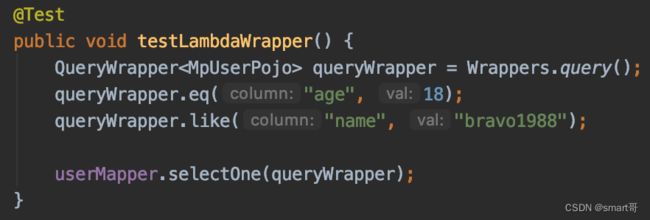- 正则表达式
yuren_xia
前端技术后端技术正则表达式javajavascript
正则表达式(RegularExpression)是一种用于描述字符模式的规则,主流语言对其都有良好的支持。文章目录一、元字符二、常见校验1、校验数字的表达式2、校验字符的表达式3、特殊需求表达式三、JavaScript中使用正则表达式四、在java中使用正则表达式一、元字符正则表达式中有许多元字符,它们具有特殊的含义:1、字符类相关点号(.)匹配除换行符之外的任意单个字符。例如,在表达式a.b中,
- Day08-综合练习
坚持学习每一天
Java基础java算法排序算法
importjava.util.Random;publicclasstest3{/*定义方法实现随机产生一个5位的验证码验证码格式:长度为s前四位是大写字母或者小写字母最后一位是数字*///方法://在一堆没有什么规律的数据中随机抽取//可以先把这些数据放到数组当中//再随机抽取一个索引publicstaticvoidmain(String[]args){char[]chs=newchar[52]
- java实体数据校验validation
秋风未动蝉已先觉
javajava
javax.validationvalidation-api1.1.0.Finalorg.hibernatehibernate-validator5.4.1.Final//实体publicclassEntity{@NotNull(message="name字段值不能为空")privateStringname;@Max(value=20,message="address最大长度为20")privat
- React Native
svygh123
问题解决过程编程jsreactnativereact.jsjavascript
ReactNative是一个用于构建原生移动应用的框架,它使用JavaScript和React(一个用于构建用户界面的JavaScript库)来开发iOS和Android平台的应用程序。ReactNative由Facebook开发并维护,并且是开源的。特点跨平台开发:ReactNative允许开发者使用相同的代码库为多个平台(如iOS和Android)编写应用,极大地提高了开发效率。热重载:开发者
- Java函数式接口四部曲之Consumer
sundawei2016
java前端开发语言
Consumer是一个函数式接口,位于java.util.function包中。它表示一个接受单个输入参数并且不返回任何结果的操作。Consumer通常用于需要对输入参数执行某些操作但不产生返回值的场景。Consumer接口定义了一个抽象方法:accept(Tt):接受一个类型为T的参数,并对其执行操作。Consumerdisplay=System.out::println;display.acc
- (十六)Java-File
Kyrie_Li
Java体系java开发语言
File类是Java中最基础的文件处理类,它用于表示文件和目录(文件路径)。File类不能直接进行读写操作,它仅用于描述文件或目录的元数据,比如文件名、路径、大小等。一、File类的构造方法1.通过提供文件的路径字符串来创建一个File对象。路径可以是绝对路径也可以是相对路径。Filefile=newFile("D:\\test\\555.txt");2.通过父目录路径和子文件/目录路径来创建Fi
- (六)Java-BigDecimal
Kyrie_Li
Java体系java开发语言
一、概述BigDecimal类用于高精度计算,特别适用于需要进行精确浮点数运算的场合,例如货币计算、金融应用或科学计算。二、优势由于double和float类型是浮点数类型,它们在表示一些十进制数时会出现精度丢失问题,而BigDecimal则可以避免这些问题,提供任意精度的数值表示。三、特点1.任意精度:BigDecimal的精度仅受限于计算机的内存,而不像float和double有固定的精度限制
- MyBatis Plus 在 Java 项目中的高效使用
随风九天
匠心数据库javaspringjavamybatisMyBatisPlus
1.前言1.1MyBatisPlus简介MyBatisPlus是一个MyBatis的增强工具,旨在简化开发人员在数据库操作上的工作量。它提供了丰富的功能,如自动化的CRUD操作、条件构造器、分页查询等,极大地提高了开发效率。1.2为什么选择MyBatisPlus简化代码:自动生成基础的CRUD方法,减少重复代码。提高效率:内置多种插件和工具,提升开发速度。易于维护:代码结构清晰,便于后续维护和扩展
- java--数据校验Validator
郑*杰
java开发语言spring
一、基于注解进行数据校验1、配置依赖java--常用依赖配置_郑*杰的博客-CSDN博客2、创建一个配置类packagecom.ruqi.aditainoal;importorg.springframework.context.annotation.Bean;importorg.springframework.context.annotation.ComponentScan;importorg.s
- Apipost一站式API工具评测:整合Postman+Swagger+JMeter三大功能,打造全流程开发解决方案
作为一名Java开发者,始终追求开发过程的高效性。使用IntelliJIDEA编写代码只是开始。一般来说,代码完成后,我们会切换到Postman进行API调试。在确保API表现符合预期后,我们会使用Swagger为前端团队生成文档。最后,再使用JMeter进行性能和负载测试,以确保API工作流顺畅且自动化。Apipost=Postman+Swagger+JMeter然而,这种多工具的方法存在诸多挑
- VScode使用小技巧
前端CV攻城狮
vscodejavascript前端
代码片段快捷键设置设置位置:文件—首选项—用户代码片段----搜javaScript,进入JavaScript.json,自定义快捷键(setting→ConfigureUserSnippets→JavaScripts.json)例:log快速输入console.log()"Printtoconsole":{"prefix":"log","body":["console.log('$1')"],"
- Java基于redis实现进度条
冰糖码奇朵
javaredis
一.问题背景为了提升用户体验,开发中有很多场景需要用到进度条,比如导入、导出、大规模更新操作等。进度条在许多大型系统中使用频率较高,反复编写既麻烦又不利于维护,因此基于Redis抽成公共方法供不同功能调用。二.实现方案1.引入依赖如果系统已集成Redis,直接跳到第5步,进度条实现。org.springframework.bootspring-boot-starter-data-redis2.配置
- Mysql、MyBatis一键删除重复数据实现方案
冰糖码奇朵
数据库mysqlmybatissql
一.问题背景项目中有全表数据一键剔除重复的需求场景,也就是一张数据表中除了主键、创建时间、修改时间等基本字段,其他业务字段均参与剔重校验,任何两行数据中,参与剔重校验的所有字段值完全相同则为重复,重复数据仅保留一行,其余删除。二.实现思路将所有参与剔重校验的字段进行分组,保留分组数据中id最大的那一条,其余删除。三.实现代码此处展示MyBatis代码,转换为sql同理。update`${table
- 数据监控工具Mixpanel的简易使用教程
alankuo
大数据
Mixpanel的使用教程如下:注册与准备创建账号:访问Mixpanel官方网站,按照提示填写相关信息创建账号。登录后,在项目设置中可以获取项目密钥。了解基本概念:明确事件、用户属性等基本概念。事件是用户在应用中的操作,如点击按钮、完成注册等;用户属性是描述用户特征的信息,像年龄、城市、会员等级等。集成SDKWeb应用:在HTML文件中引入MixpanelJavaScriptSDK。在页面的标签内
- 如何实现集群中的session共享存储?思维导图 代码示例(java 架构)
用心去追梦
java架构开发语言
集群中Session共享存储的实现在分布式系统或集群环境中,确保用户会话(Session)能够在所有节点之间共享是一个关键问题。为了实现这一点,可以采用多种策略和技术。以下是关于如何在Java架构中实现集群中的Session共享存储的主要方面:1.使用集中式存储服务Memcached:轻量级、高性能的内存缓存系统,适用于存储短期的session数据。Redis:功能更强大的键值存储数据库,不仅支持
- Java常用集合与映射的线程安全问题深度解析
yang789022
编程学习java安全python
Java常用集合与映射的线程安全问题深度解析一、线程安全基础认知二、典型非线程安全集合问题分析1.ArrayList的并发陷阱2.HashMap的并发灾难3.HashSet的隐藏风险三、线程安全解决方案对比1.同步包装方案2.传统线程安全集合3.现代并发容器(java.util.concurrent包)3.1CopyOnWriteArrayList3.2ConcurrentHashMap3.3Co
- java 连接oracle 字符集_Java连接Oracle数据库,编码格式转换
东京客
java连接oracle字符集
学习东西不忘记下笔记:dbhelper类,各种数据库都合适。publicclassDBHelper{//mysql数据库//publicstaticfinalStringurl="jdbc:mysql://127.0.0.1:3306/test";//publicstaticfinalStringname="com.mysql.jdbc.Driver";//publicstaticfinalStr
- java 读取resource文件夹文件_Java 获取Resource目录下的文件解决办法
鬼斧神工119
java读取resource文件夹文件
该楼层疑似违规已被系统折叠隐藏此楼查看此楼Java获取Resource目录下的文件有两种方式:Java代码中的类,要获取Resource资源文件目录下文件绝对路径寻址注意这个/址的是根目录,用绝对路径,可能会出现的问题是,你的程序在windows上可以用,但是在linux不能用,原因在于,你这根目录在windows环境址你的src目录放到linux环境,就可能执行你linux的根目录了,会导致fi
- jvm堆外内存(直接内存)
不坠青云之志
JavaJvmdirectmemory
堆外内存(直接内存)堆外内存,又被称为直接内存。这部分内存不是由jvm管理和回收的。需要我们手动的回收。堆内内存是属于jvm的,由jvm进行分配和管理,属于"用户态",而推外内存是由操作系统管理的,属于"内核态"在jdk1.4中新加入了NIO类,他可以调用native函数库直接分配堆外内存,然后通过java堆中的DirectByteBuffer对象来指向这块内存,进行内存分配等工作。可以这样申请堆
- JVM内存深度解析:堆内与堆外内存的监控与诊断
猿泰山
Java核心技术jvm
JVM内存深度解析:堆内与堆外内存的监控与诊断一、引言在Java应用中,JVM(JavaVirtualMachine)的内存管理至关重要。其中,堆内内存和堆外内存是两个核心概念。堆内内存主要存储Java对象实例,而堆外内存则与Java的NIO(NewI/O)库密切相关,主要用于存储不受Java堆大小限制的直接缓冲区。本文将深入探讨如何监控和诊断这两种类型的内存使用。二、堆内内存监控与诊断JVM参数
- 【从零开始学java】第1章,基础知识入门,小白零基础可看,笔记整理
莉莉鸟
java学习
java基础11注释标志符关键字注释注释并不会被执行,是写给人类看的,书写注释是一个很好的习惯平时写代码一定要注意规范单行注释//多行注释/*注释*/文档注释/**注释*/2标识符关键字abstract:用于声明抽象类或抽象方法。assert:用于调试时进行断言。boolean:表示布尔类型(true或false)。break:跳出当前循环或switch语句。byte:表示字节数据类型。case:
- 查看 jvm 堆外内存大小
Horizon_Zy
JVM相关java开发语言后端
java.nio.Bits#reservedMemor该值为堆外内存占用大小。可以通过arthasattach后用ognl进行输出。ognl@java.nio.Bits@reservedMemory.value
- 最新网络安全-跨站脚本攻击(XSS)的原理、攻击及防御_xsstrike原理
2401_84239830
程序员web安全xss安全
XSS的类型反射型XSS/不持久型XSS存储型XSS/持久型XSS基于DOM的XSS常用Payload与工具XSS扫描工具Payloadsscript标签类结合js的html标签伪协议绕过危害防御简介跨站脚本攻击(全称CrossSiteScripting,为和CSS(层叠样式表)区分,简称为XSS)是指恶意攻击者在Web页面中插入恶意javascript代码(也可能包含html代码),当用户浏览网
- CICD系列之jenkins
john137724
DEV-OPSdockerjenkins
jenkins专题安装docker&docker-compose安装jenkins编写docker-compose.yml脚本配置jenkins安装常用插件记录jenkins安装、配置、使用的常用操作linux物理机安装安装docker&docker-composedocker安装与配置安装jenkins#创建docker桥接网络dockernetworkcreatejohn-net#新建数据目录
- CICD系列之harbor
john137724
DEV-OPSharbor
镜像仓库专题安装docker&docker-compose安装harbor下载并解压安装文件修改配置文件安装、管理harbor访问harbor重点提示记录镜像仓库的常用操作。安装docker&docker-composedocker&docker-compose安装与配置安装harbor下载并解压安装文件#下载到指定目录并进入该目录wgethttps://github.com/goharbor/h
- 如何使用Java和ElasticSearch实现全文搜索
微赚淘客系统开发者@聚娃科技
javaelasticsearch开发语言
如何使用Java和ElasticSearch实现全文搜索大家好,我是微赚淘客系统3.0的小编,是个冬天不穿秋裤,天冷也要风度的程序猿!今天我们来探讨如何使用Java和ElasticSearch实现全文搜索。ElasticSearch是一个分布式搜索和分析引擎,能够处理大规模数据并提供实时搜索功能。在本文中,我们将介绍如何使用Java客户端与ElasticSearch进行交互,实现简单的全文搜索功能
- 基于大数据架构的就业岗位推荐系统的设计与实现【java或python】—计算机毕业设计源码+LW文档
qq_375279829
大数据架构python课程设计算法
摘要随着互联网技术的迅猛发展和大数据时代的到来,就业市场日益复杂多变,求职者与招聘方之间的信息不对称问题愈发突出。为解决这一难题,本文设计并实现了一个基于大数据架构的就业岗位推荐系统。该系统通过收集、整合并分析大量求职者简历信息、企业招聘信息以及市场动态数据,运用先进的机器学习算法,为求职者提供个性化的岗位推荐服务,同时帮助企业快速定位到合适的候选人。本文将从系统设计的背景与意义、技术基础、需求分
- Java 基础核心总结
仅此而已丶
Java基础教程系列开发语言java
目录前言介绍1、基本语法2、面向对象编程3、异常处理4、集合框架5、IO流6、多线程专栏地址前言Java是一种广泛使用的程序设计语言,具有跨平台、面向对象、安全性高、灵活性强等特点,广泛应用于企业级应用程序和移动应用程序等领域。在学习Java语言时,需要掌握一些基础核心知识,本文将为您总结Java基础核心知识点,以便于您的学习和参考。介绍Java基础核心知识点包括基本语法、面向对象编程、异常处理、
- java 金额转中文大写
两眼墨黑
javapython开发语言
publicclassNumberChinese{publicstaticStringnumberChinese(Stringstr){BigDecimalnum=newBigDecimal(str);StringstrOutput;StringstrUnit="仟佰拾亿仟佰拾万仟佰拾元角分";StringstrNum="零壹贰叁肆伍陆柒捌玖";num=num.setScale(2,Roundin
- java基础知识点详解一:Java概述及三种技术架构
我是老实人辶
java程序员架构
Java语言是一门随时代快速发展的计算机语言程序,其深刻展示了程序编写的精髓,加上其简明严谨的结构及简洁的语法编写为其将来的发展及维护提供了保障。由于提供了网络应用的支持和多媒体的存取,会推动Internet和企业网络的Web的应用java概述:1991年Sun公司的JamesGosling等人开始开发名称为Oak的语言,希望用于控制嵌入在有线电视交换盒、PDA等的微处理器;1994年将Oak语言
- Algorithm
香水浓
javaAlgorithm
冒泡排序
public static void sort(Integer[] param) {
for (int i = param.length - 1; i > 0; i--) {
for (int j = 0; j < i; j++) {
int current = param[j];
int next = param[j + 1];
- mongoDB 复杂查询表达式
开窍的石头
mongodb
1:count
Pg: db.user.find().count();
统计多少条数据
2:不等于$ne
Pg: db.user.find({_id:{$ne:3}},{name:1,sex:1,_id:0});
查询id不等于3的数据。
3:大于$gt $gte(大于等于)
&n
- Jboss Java heap space异常解决方法, jboss OutOfMemoryError : PermGen space
0624chenhong
jvmjboss
转自
http://blog.csdn.net/zou274/article/details/5552630
解决办法:
window->preferences->java->installed jres->edit jre
把default vm arguments 的参数设为-Xms64m -Xmx512m
----------------
- 文件上传 下载 解析 相对路径
不懂事的小屁孩
文件上传
有点坑吧,弄这么一个简单的东西弄了一天多,身边还有大神指导着,网上各种百度着。
下面总结一下遇到的问题:
文件上传,在页面上传的时候,不要想着去操作绝对路径,浏览器会对客户端的信息进行保护,避免用户信息收到攻击。
在上传图片,或者文件时,使用form表单来操作。
前台通过form表单传输一个流到后台,而不是ajax传递参数到后台,代码如下:
<form action=&
- 怎么实现qq空间批量点赞
换个号韩国红果果
qq
纯粹为了好玩!!
逻辑很简单
1 打开浏览器console;输入以下代码。
先上添加赞的代码
var tools={};
//添加所有赞
function init(){
document.body.scrollTop=10000;
setTimeout(function(){document.body.scrollTop=0;},2000);//加
- 判断是否为中文
灵静志远
中文
方法一:
public class Zhidao {
public static void main(String args[]) {
String s = "sdf灭礌 kjl d{';\fdsjlk是";
int n=0;
for(int i=0; i<s.length(); i++) {
n = (int)s.charAt(i);
if((
- 一个电话面试后总结
a-john
面试
今天,接了一个电话面试,对于还是初学者的我来说,紧张了半天。
面试的问题分了层次,对于一类问题,由简到难。自己觉得回答不好的地方作了一下总结:
在谈到集合类的时候,举几个常用的集合类,想都没想,直接说了list,map。
然后对list和map分别举几个类型:
list方面:ArrayList,LinkedList。在谈到他们的区别时,愣住了
- MSSQL中Escape转义的使用
aijuans
MSSQL
IF OBJECT_ID('tempdb..#ABC') is not null
drop table tempdb..#ABC
create table #ABC
(
PATHNAME NVARCHAR(50)
)
insert into #ABC
SELECT N'/ABCDEFGHI'
UNION ALL SELECT N'/ABCDGAFGASASSDFA'
UNION ALL
- 一个简单的存储过程
asialee
mysql存储过程构造数据批量插入
今天要批量的生成一批测试数据,其中中间有部分数据是变化的,本来想写个程序来生成的,后来想到存储过程就可以搞定,所以随手写了一个,记录在此:
DELIMITER $$
DROP PROCEDURE IF EXISTS inse
- annot convert from HomeFragment_1 to Fragment
百合不是茶
android导包错误
创建了几个类继承Fragment, 需要将创建的类存储在ArrayList<Fragment>中; 出现不能将new 出来的对象放到队列中,原因很简单;
创建类时引入包是:import android.app.Fragment;
创建队列和对象时使用的包是:import android.support.v4.ap
- Weblogic10两种修改端口的方法
bijian1013
weblogic端口号配置管理config.xml
一.进入控制台进行修改 1.进入控制台: http://127.0.0.1:7001/console 2.展开左边树菜单 域结构->环境->服务器-->点击AdminServer(管理) &
- mysql 操作指令
征客丶
mysql
一、连接mysql
进入 mysql 的安装目录;
$ bin/mysql -p [host IP 如果是登录本地的mysql 可以不写 -p 直接 -u] -u [userName] -p
输入密码,回车,接连;
二、权限操作[如果你很了解mysql数据库后,你可以直接去修改系统表,然后用 mysql> flush privileges; 指令让权限生效]
1、赋权
mys
- 【Hive一】Hive入门
bit1129
hive
Hive安装与配置
Hive的运行需要依赖于Hadoop,因此需要首先安装Hadoop2.5.2,并且Hive的启动前需要首先启动Hadoop。
Hive安装和配置的步骤
1. 从如下地址下载Hive0.14.0
http://mirror.bit.edu.cn/apache/hive/
2.解压hive,在系统变
- ajax 三种提交请求的方法
BlueSkator
Ajaxjqery
1、ajax 提交请求
$.ajax({
type:"post",
url : "${ctx}/front/Hotel/getAllHotelByAjax.do",
dataType : "json",
success : function(result) {
try {
for(v
- mongodb开发环境下的搭建入门
braveCS
运维
linux下安装mongodb
1)官网下载mongodb-linux-x86_64-rhel62-3.0.4.gz
2)linux 解压
gzip -d mongodb-linux-x86_64-rhel62-3.0.4.gz;
mv mongodb-linux-x86_64-rhel62-3.0.4 mongodb-linux-x86_64-rhel62-
- 编程之美-最短摘要的生成
bylijinnan
java数据结构算法编程之美
import java.util.HashMap;
import java.util.Map;
import java.util.Map.Entry;
public class ShortestAbstract {
/**
* 编程之美 最短摘要的生成
* 扫描过程始终保持一个[pBegin,pEnd]的range,初始化确保[pBegin,pEnd]的ran
- json数据解析及typeof
chengxuyuancsdn
jstypeofjson解析
// json格式
var people='{"authors": [{"firstName": "AAA","lastName": "BBB"},'
+' {"firstName": "CCC&
- 流程系统设计的层次和目标
comsci
设计模式数据结构sql框架脚本
流程系统设计的层次和目标
- RMAN List和report 命令
daizj
oraclelistreportrman
LIST 命令
使用RMAN LIST 命令显示有关资料档案库中记录的备份集、代理副本和映像副本的
信息。使用此命令可列出:
• RMAN 资料档案库中状态不是AVAILABLE 的备份和副本
• 可用的且可以用于还原操作的数据文件备份和副本
• 备份集和副本,其中包含指定数据文件列表或指定表空间的备份
• 包含指定名称或范围的所有归档日志备份的备份集和副本
• 由标记、完成时间、可
- 二叉树:红黑树
dieslrae
二叉树
红黑树是一种自平衡的二叉树,它的查找,插入,删除操作时间复杂度皆为O(logN),不会出现普通二叉搜索树在最差情况时时间复杂度会变为O(N)的问题.
红黑树必须遵循红黑规则,规则如下
1、每个节点不是红就是黑。 2、根总是黑的 &
- C语言homework3,7个小题目的代码
dcj3sjt126com
c
1、打印100以内的所有奇数。
# include <stdio.h>
int main(void)
{
int i;
for (i=1; i<=100; i++)
{
if (i%2 != 0)
printf("%d ", i);
}
return 0;
}
2、从键盘上输入10个整数,
- 自定义按钮, 图片在上, 文字在下, 居中显示
dcj3sjt126com
自定义
#import <UIKit/UIKit.h>
@interface MyButton : UIButton
-(void)setFrame:(CGRect)frame ImageName:(NSString*)imageName Target:(id)target Action:(SEL)action Title:(NSString*)title Font:(CGFloa
- MySQL查询语句练习题,测试足够用了
flyvszhb
sqlmysql
http://blog.sina.com.cn/s/blog_767d65530101861c.html
1.创建student和score表
CREATE TABLE student (
id INT(10) NOT NULL UNIQUE PRIMARY KEY ,
name VARCHAR
- 转:MyBatis Generator 详解
happyqing
mybatis
MyBatis Generator 详解
http://blog.csdn.net/isea533/article/details/42102297
MyBatis Generator详解
http://git.oschina.net/free/Mybatis_Utils/blob/master/MybatisGeneator/MybatisGeneator.
- 让程序员少走弯路的14个忠告
jingjing0907
工作计划学习
无论是谁,在刚进入某个领域之时,有再大的雄心壮志也敌不过眼前的迷茫:不知道应该怎么做,不知道应该做什么。下面是一名软件开发人员所学到的经验,希望能对大家有所帮助
1.不要害怕在工作中学习。
只要有电脑,就可以通过电子阅读器阅读报纸和大多数书籍。如果你只是做好自己的本职工作以及分配的任务,那是学不到很多东西的。如果你盲目地要求更多的工作,也是不可能提升自己的。放
- nginx和NetScaler区别
流浪鱼
nginx
NetScaler是一个完整的包含操作系统和应用交付功能的产品,Nginx并不包含操作系统,在处理连接方面,需要依赖于操作系统,所以在并发连接数方面和防DoS攻击方面,Nginx不具备优势。
2.易用性方面差别也比较大。Nginx对管理员的水平要求比较高,参数比较多,不确定性给运营带来隐患。在NetScaler常见的配置如健康检查,HA等,在Nginx上的配置的实现相对复杂。
3.策略灵活度方
- 第11章 动画效果(下)
onestopweb
动画
index.html
<!DOCTYPE html PUBLIC "-//W3C//DTD XHTML 1.0 Transitional//EN" "http://www.w3.org/TR/xhtml1/DTD/xhtml1-transitional.dtd">
<html xmlns="http://www.w3.org/
- FAQ - SAP BW BO roadmap
blueoxygen
BOBW
http://www.sdn.sap.com/irj/boc/business-objects-for-sap-faq
Besides, I care that how to integrate tightly.
By the way, for BW consultants, please just focus on Query Designer which i
- 关于java堆内存溢出的几种情况
tomcat_oracle
javajvmjdkthread
【情况一】:
java.lang.OutOfMemoryError: Java heap space:这种是java堆内存不够,一个原因是真不够,另一个原因是程序中有死循环; 如果是java堆内存不够的话,可以通过调整JVM下面的配置来解决: <jvm-arg>-Xms3062m</jvm-arg> <jvm-arg>-Xmx
- Manifest.permission_group权限组
阿尔萨斯
Permission
结构
继承关系
public static final class Manifest.permission_group extends Object
java.lang.Object
android. Manifest.permission_group 常量
ACCOUNTS 直接通过统计管理器访问管理的统计
COST_MONEY可以用来让用户花钱但不需要通过与他们直接牵涉的权限
D


